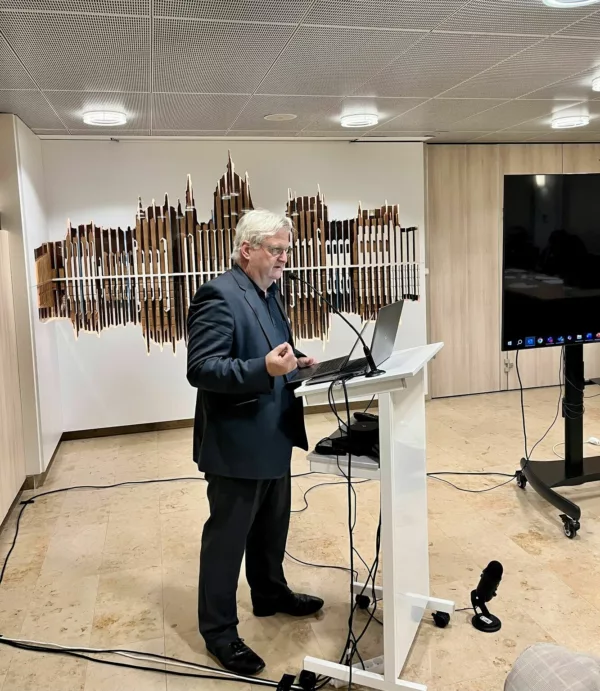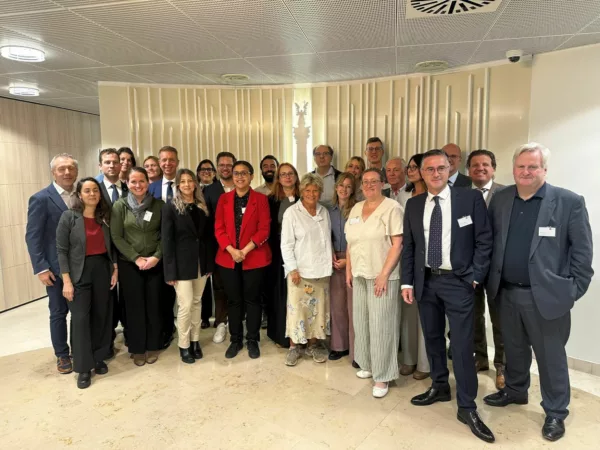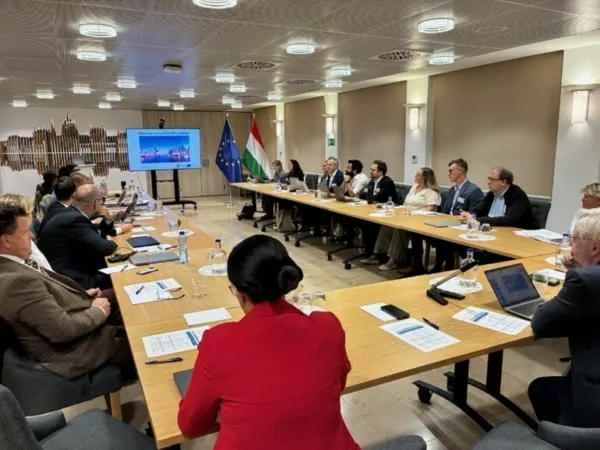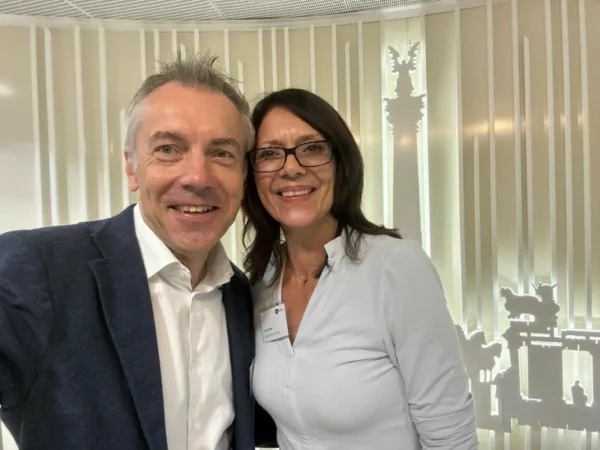BCLEAR project kicks off to advance bladder cancer literacy in Europe
The BCLEAR project launches to improve bladder cancer literacy in Europe, providing multilingual educational tools, shared decision-making resources, and policy recommendations to empower patients and reduce care inequalities.
The BCLEAR project has been launched to improve bladder cancer literacy in Europe, rolling out multilingual educational tools such as feature videos, infographics and downloadable guides, all with multiple translated options to reach diverse audiences. The project will also use shared decision-making (SDM) resources, and policy recommendations designed to empower patients and address care inequalities.
Background
Co-funded by the European Union, this three-year initiative brings together the patient community, urologists, family doctors, academia, and public health experts with a shared ambition: to improve people’s understanding of bladder cancer and make access to information and care more equal across the region. Bladder cancer is the fifth most common cancer in Europe, yet it remains widely under-recognised despite its profound impact on patients and their families.
Around 60% of bladder cancer cases occur in the EU’s lower socio-economic countries, primarily mostly affecting high-risk populations. Early symptoms of bladder cancer are being overlooked by people, due to limited Limited public awareness and the difficulty many people have in recognising initial symptoms. of, combined with difficulties recognising early symptoms., often leads to late diagnosis. Even after receiving a diagnosis, many patients and families lack clear, reliable, and accessible information about treatment options and care pathways, which affects their ability to engage in shared decision-making and contributes to unequal outcomes across countries.
This is a unique opportunity for healthcare professionals to co-develop Shared Decision Making (SDM) resources alongside patients, in close collaboration with key stakeholders in Hungary, Greece and Poland.
What does the project aim to achieve?
Shared decision-making & patient support
Shared decision-making (SDM) is a process where patients and doctors make treatment decisions together, based on what matters most to the patient. SDM is an important way of giving power back to a patient in a situation where often the patient can feel powerless.
BCLEAR will also focus on integrating SDM support as part of the overall project, by:
- Launching shared decision-making tools to support conversations between patients and healthcare professionals for both non-muscle-invasive and muscle-invasive bladder cancer.
- Developing educational materials focused on educating healthcare professionals (HCPs) on how to use the SDM tools effectively.
- Developing an HCP-facing training module on how to acknowledge and address the emotional and psychological impact of bladder cancer.
Evidence-based guidance and policy
BCLEAR is committed to ensuring that all recommendations and resources are grounded in the latest scientific evidence.
To support this commitment, the project will:
- Develop the latest evidence-based guidelines on bladder cancer prevention, treatment options, and patient care.
- Produce policy recommendations to ensure the project’s results lead to long-term, sustainable change.
- Public education and awareness
- In order to develop bladder cancer awareness at an early stage, the project will:
- Develop educational materials in multiple languages to raise public awareness.
- Deliver bladder cancer awareness campaigns and organise local and European stakeholder events.
In essence, the BCLEAR project aims to make bladder cancer less of an unavoidable threat for those at risk, and more like a condition that people can recognise and understand faster through improved awareness of its symptoms and risks.
Recent developments
On September 16, 2025, the BClear project partners from across Europe gathered for the official kick-off meeting of the BClear project: Bladder Cancer Literacy for All: Advancing Knowledge and Care in Europe. This event in Brussels was graciously hosted by the Hungarian Permanent Representation to the European Union. The kick-off meeting marked the start of this collaborative effort.
Looking to the future
Over the next three years, BCLEAR will work towards a shared vision: a future where no person faces bladder cancer without the knowledge, resources, and support they need.
By strengthening bladder cancer literacy, BCLEAR aims to empower patients, enable earlier diagnosis, improve shared decision-making, and reduce inequalities in care, contributing to the goals of Europe’s Beating Cancer Plan and advancing cancer prevention strategies across Member States.
The BCLEAR Consortium
BCLEAR is coordinated by the European Association of Urology (EAU) and brings together a strong and diverse group of partners:
- the World Bladder Cancer Patient Coalition (WBCPC),
- European Cancer Leagues (ECL),
- WONCA Europe,
- Hellenic Urological Association (HUA),
- Hungarian Urological Society (HUS),
- Polish Urological Association (PTU),
Erasmus University Medical Center (EMC) Each partner contributes unique expertise, from clinical practice and research to public health, primary care, advocacy, communication, and community engagement.
How will the BCLEAR project improve health literacy around bladder cancer?
The project’s framework is based on the mapping of bladder cancer health literacy levels across all EU Member States, with a focus on Greece, Hungary, and Poland, where awareness gaps are greatest and health literacy is lowest. We’ve highlighted the key objectives of the project in further detail below.




